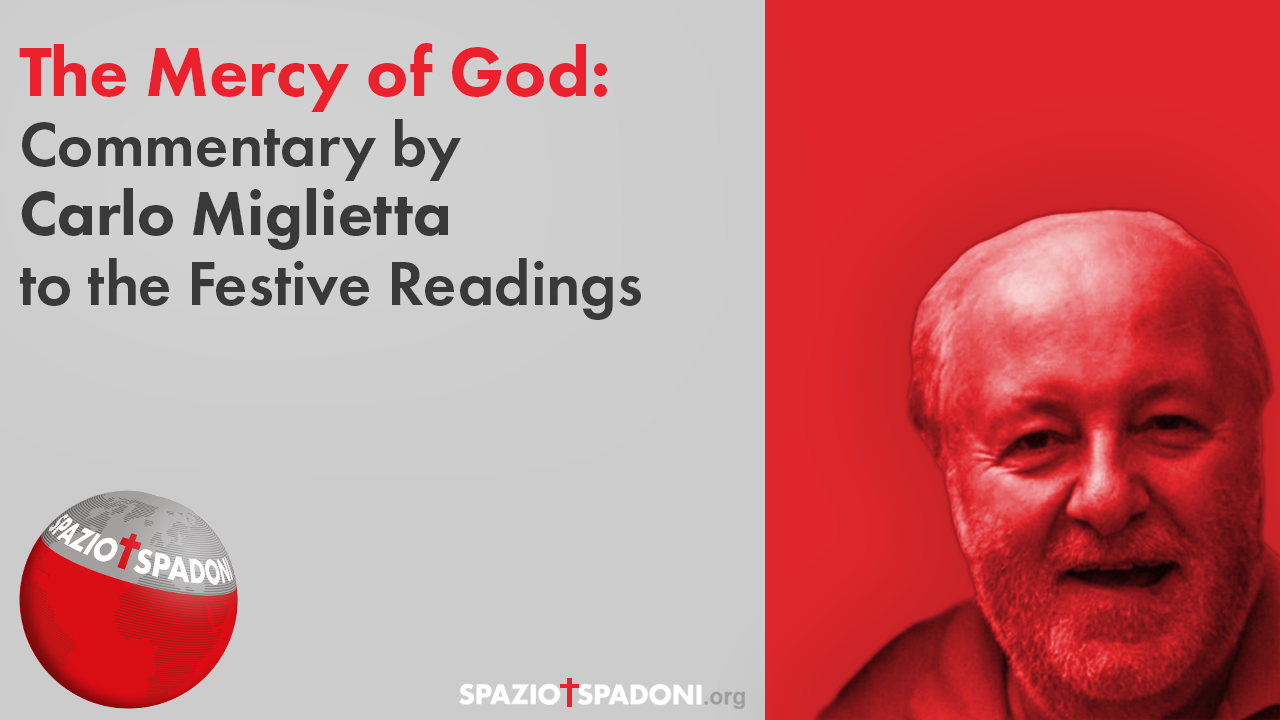
Ascension of the Lord
Readings: Ac 1:1-11; Eph 4:1-13; Mk 16:15-20
First of all, what does the Lord’s “Ascension” mean? Mark places Jesus’ Ascension on Easter Day itself (Mk. 16:19), Luke, on the other hand, places it after 40 days (Acts 1:3): but in the Bible the number “40” indicates an accomplished time, a period willed by God… Certainly the Risen Jesus was seen as such for a specific time frame, after which He was no longer manifested in appearance. “Ascension” is an image in space-time language to express precisely that from a certain moment Christ was no longer found within the limit of our human perception: He is the Living One outside of space and time, in the eternity and infinity of God, “in heaven.”
That is why the New Testament speaks indifferently of resurrection or ascension-glorification-exaltation (Acts 2:32-33; 5:30-31; Rom 8:34; Eph 1:20; 4:9; Phil 2:8-9; 1 Pet 3:21-22; Lk 24:26…). Indeed, in John the glorification of Jesus already begins on the Cross, when He “lifted up from the earth, He will draw all to Himself” (Jn 12:32-33; cf. 3:14; 8:28): it is all one action, one movement, one moment, the “Hour” of Jesus (Jn 2:4; 7:30; 8:20; 12:23.27; 16:25.32; 17:1), by which He returns to the Father (Jn 13:1; 14:12-28; 16:5-10.28).
The Liturgy therefore celebrates today the otherness of the Living Lord from our earthly reality: to us who live increasingly clinging to a sense of possession, drunk on the myth of having, stability, and security, it forcefully reminds us of the transience of the world and the relativity of human things: we are “pilgrims and strangers on earth” (Ps 119:54; 1 Pet 1:17; 2 Pet 2:11; Heb 11:13), on a permanent journey toward the Absolute of God. Christians must always remember that they are “in the world … but are not of the world” (Jn 17:11, 16), that for now they are “in exile far from the Lord” (2 Cor 5:6), that “they have no stable city down here, but are seeking the one to come” (Heb 13:13): their “homeland is in heaven” (Phil 3:20).
Paul exhorts us, “If you have risen with Christ, seek the things above, where Christ is seated at the right hand of God; think of the things above, not of those on earth…. Mortify therefore that part of you which belongs to the earth: fornication, impurity, passions, evil desires, and that insatiable avarice which is idolatry…” (Col. 3:1-2.5). The Christian therefore challenges the idolatry of this world with his life, recognizing it as the “penultimate reality”: only the Kingdom of God is “the goal” (Phil 3:14). Therefore, she bases her life not on worldly logic, but on the newness of the revelation of God-Love; and she lives in expectation of the blessed hope, longing to be reunited with her Lord, with the eagerness with which the lover waits for the lover (Chr. 3:1-4; 5:2), the bride for the Bridegroom, imploring, “Maranatha, Come, Lord!” (Rev. 22:17).
Another teaching today is that it is up to the disciples to prolong in the world the incarnation of the Son of God by becoming concrete signs of his love for people, becoming themselves, for their brothers and sisters, the first experience of God’s goodness and salvation. We are Christ’s first sacrament for the world: our legs are the legs with which Jesus comes to every man today, our arms are the arms with which Jesus rescues him, our mouth the one with which Christ consoles him and announces salvation to him. We are called to be, for the world, the mediators, the mediators of salvation. But in this great and difficult mission we are not alone. Jesus promises us the “power of the Holy Spirit” (Acts 1:8) and reassures us, “Behold, I am with you always, to the end of the world” (Mt 28:20).
